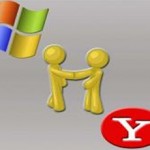 Redmond, Washington — Microsoft’s admiration of open-source has prompted it to extend an olive branch to the cause in an attempt to deepen its penetration and advance it to the next level, as the company founded the CodePlex open source foundation. The Redmond, Washington, software titan is supporting the CodePlex Foundation with $1 million to enable the exchange of code and understanding between software companies and open-source communities.
Redmond, Washington — Microsoft’s admiration of open-source has prompted it to extend an olive branch to the cause in an attempt to deepen its penetration and advance it to the next level, as the company founded the CodePlex open source foundation. The Redmond, Washington, software titan is supporting the CodePlex Foundation with $1 million to enable the exchange of code and understanding between software companies and open-source communities.
According to its Web site, the new CodePlex Foundation “would seamlessly equilibrate exchange of code and understanding among software companies and open source communities, providing a forum in which best practices can be established by a broad group of participants, both software companies and open source communities,” the CodePlex Foundation opened on September 10th 2009, with the Redmond-based company providing initial financial backing no less than $1 million.
In essence, the CodePlex Foundation is aimed at connecting commercial software companies with open source communities by focusing on collaborative projects.
The foundation is designated as nonprofit whose interim president will be Sam Ramji, who is currently senior director of platform strategy at Microsoft, in charge of the company’s open-source endeavors will lead the foundation. Open-source backers are cautious of Microsoft, which recently moved against Linux.
However, so far it is not clear if the decision means Ramji would be relieved of his assignments at Microsoft. A board of directors supporting Ramji mainly constituted of Microsoft employees, including Bill Staples, general manager of Microsoft’s Web platform and tools team, Stephanie Boesch and Britt Johnson. The only non-Microsoft appointee on the board are longtime open-source guru Miguel de Icaza of Novell and Shaun Walker, co-founder of DotNetNuke.
The company claims the new organization is independent from the software giant, and during the next 100 days, the new foundation will be formulated and defined in all of its aspects, according to current plans.
“We need the community’s involvement to make the CodePlex Foundation a success. We do not have all of the answers today. With today’s soft launch, we hope to get critical input that will ensure the Foundation is a respected, neutral party that can enhance collaboration between participating companies, industry partners and open source communities. Over the coming weeks and months, we will be reaching out to many folks to get their feedback and to ask them to get involved with the Foundation,” Staples said.
Still, the open-source community continues to be cautious of Microsoft’s intentions when it comes to Linux. The uncertainty among Linux backers was recently heightened by media reports suggesting Microsoft has been instructing Best Buy employees on how to communicate with customers in ways that stress the superiority of Windows 7 over Linux.
This is an unanticipated and interesting move from Redmond. Unlike other open-source foundations, such as the Mozilla Foundation and GNOME Foundation, the foundation said on its Web site that it aims to address the full spectrum of software projects.
Furthermore, Ramji and the board will look into for a permanent executive director of the foundation, which now only has a deputy director, Mark Stone, formerly of O’Reilly and VA Linux (now SourceForge), according to the Web site.
Microsoft for a long time has had a thorny relationship with the open-source community, but in the past couple of years Ramji’s Platform Strategy Group has been trying to work more closely with open-source companies. Microsoft asserts that open-source software has become an important part of many product groups and strategies across the company.
“We have become increasingly clear on where we work with open source — development methodologies, projects, partners, products and communities — and where our products compete with commercial open-source companies or platforms,” said Bill Hilf, general manager of Windows Server Marketing and Platform Strategy at Microsoft. “Today, there are engineering and business leaders across the company, myself included, looking at how to drive interoperability for customers and as a lever for new growth.”
Concurrently, however, Microsoft has continued to present a litigation threat to open-source companies over patents it claims to hold for technologies incorporated in open-source software, including Linux. Microsoft has consistently and quietly been striking patent deals with Linux distributors. Some of the deals call for the companies to pay Microsoft to license patented technologies.
One such case that appeared in court earlier this year, when Microsoft filed a patent suit against GPS device manufacturer TomTom over patents contained in the Linux enforcement TomTom uses in its devices. TomTom eventually paid Microsoft out of court to settle the case, which Microsoft claimed was a patent case and not an attack against Linux.


